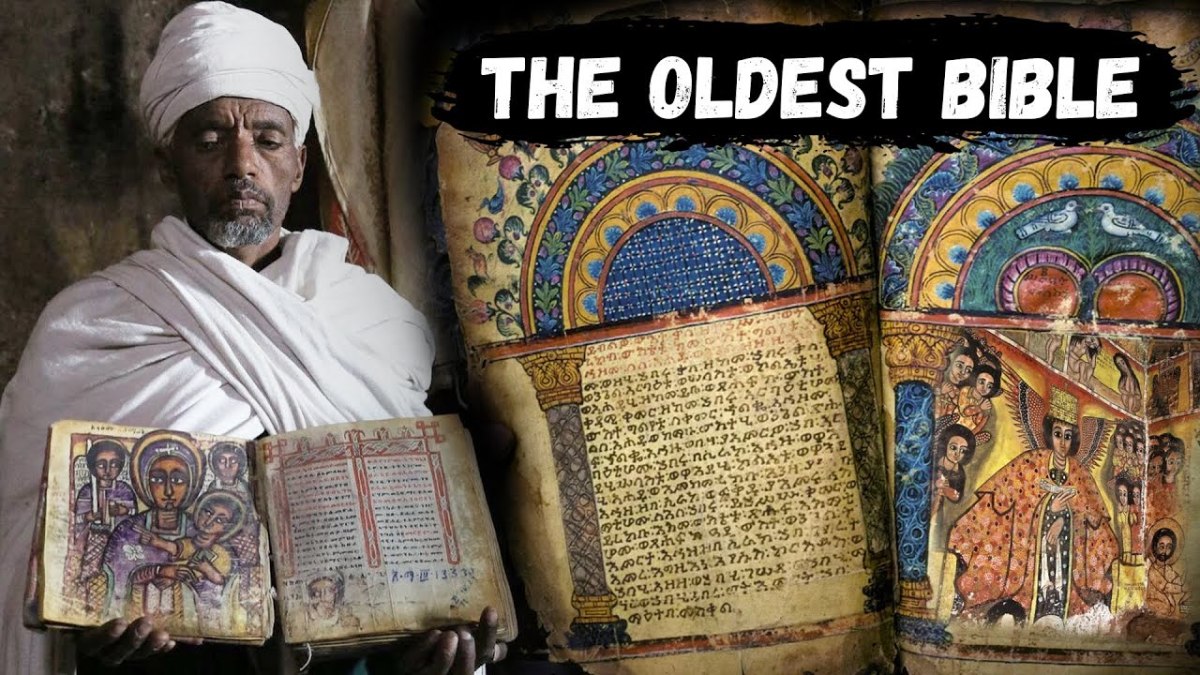Bible: What Does Matthew 13:33-58 Teach About the Mysteries of the Kingdom (Continued)
Parable of Leaven
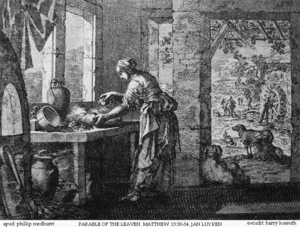
Wheat and Tares
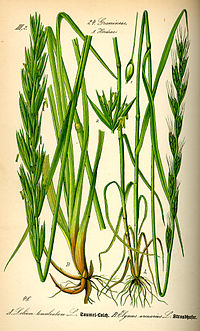
Giving Up Everything
Is willingness to give up everything to possess the kingdom a prerequisite for salvation/
Matthew 13:33-58--The Mysteries of the Kingdom
The Kingdom is Like Leaven
Jesus’ third parable likens the kingdom of heaven to leaven (v. 33).
While leaven sometimes functions as a symbol of evil in the OT (and applying that meaning here leads to the interpretation that evil will eventually saturate the kingdom), the term may merely point to this agent’s effect on a medium to which it is applied: namely, total penetration.
In this latter case, evil does not saturate the kingdom, but the kingdom influences the universal culture.
Given the previous parable, it seems more likely that Jesus meant that the kingdom will spread its spiritual influence worldwide rather than that evil will totally dominate the kingdom.
[As stated earlier (cf. 8:18), Matthew does not greatly concern himself with setting events in chronological order.
Hhere he seems to provide a summary about Jesus’ use of parables and prophetic Scripture (vv. 34-35) before indicating a change of setting (v. 36).
The apostle observes, making his point in almost parallel fashion, that Jesus purposefully spoke to the multitudes exclusively in parables in order to fulfill Scripture.
After quoting from Psalm 78:2-3—a maskil (contemplative poem) of Asaph—[the word maskil is derived from sakal, to be prudent (BDB 968)]—Matthew attributes the passage to a speaking prophet (v. 35); thus, this psalm is an indirectly Messianic prophecy.
From the psalm’s parallelism, one may observe that the “things”—namely, the truths--in parables represent the eternal secrets of Deity.]
Interpretation of the Parable of the Wheat and the Tares; The Hidden Treasure
After the setting changes—from outside in a boat (v. 2) to inside “the house” (v. 36)—Jesus first interprets the “Wheat and Tares” parable (vv. 37-43) and then resumes His “parabolizing,” relating three more stories before concluding His speech.
The first in this series likens the kingdom to a treasure hidden in a field; hence, “The Parable of the Hidden Treasure” (v. 44).
Its wording indicates that a man finds an already hidden treasure and hides it again before deciding to divest himself of all his possessions to purchase the field.
[Observe here that an unspecified individual hid the treasure, while in the previous parable, a woman “hid” the leaven.]
Understanding Christ as the man who gives up His privilege and wealth to redeem the whole world (field) in order to possess the treasure (the saints of the kingdom) seems to make more sense than seeing the man as someone who regards the value of the treasure (kingdom citizenship?) to be so great that he is willing to give his “all” to have it. Both interpretations, however, do have merit.
The Pearl of Great Price
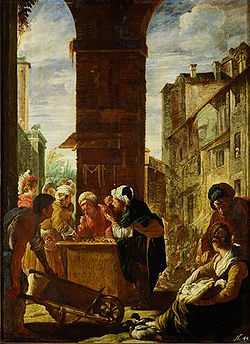
John MacArthur
The Pearl of Great Price
Second, Jesus compares the kingdom of heaven to a “pearl of great price” (vv. 45-46). Again, He depicts a man searching for something “hidden,” this time for beautiful pearls (cf. 13:33; 44).
Like the earlier treasure, a man (here, a merchant) finds a particular pearl and buys it with all of his possessions. Christ seems to stress the finding of one pearl over many.
The Dragnet
Finally, the Lord creates a parable similar in content to that of the “tares”: the dragnet (vv. 47-50). In both accounts, a mixture of good and bad things exists.
Earlier, the “things” were good wheat and bad tares; here, of course, the substances are fish.
At the harvest the reapers gather the wheat into barns, but bundle and burn the tares; likewise here, when the dragnet is full, the fishermen place the good fish into vessels after separating them from the bad, and they throw away the latter.
[Harvest= when it is full= end of the age; reapers= fishermen= angels; barns= vessels; burn= throw away =furnace of fire.]
[Thus, the kingdom of heaven is not the eternal state where only the righteous abide.
The context determines whether the term refers to the Messianic kingdom, or merely the condition that exists on Earth between the two advents of Christ. Here it is the latter.]
Asked if they understand His teaching, the apostles reply affirmatively (v. 51).
[Given their bent toward dullness of comprehension, it is difficult to believe their answer.]
Using one last simile, the Lord compares scribes—Jewish OT scholars who have also learned about the kingdom of heaven— to a householder (head of a household, NASB, v. 52) who brings out of his treasure both old and new things; that is, he understands and can discuss truths from both the OT and the teachings of Jesus.
Jesus: Lord of All
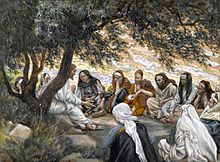
Mary: Perpetual Virginity?
view quiz statisticsJesus: Much More than a Prophet
Having left “the house,” Jesus now visits Nazareth synagogues where “they” gossip suspiciously about His teachings and miracles (“mighty works”), not understanding where this seemingly ordinary man (“the carpenter’s son”) from a well-known, though ordinary, family acquired “all these things” (vv. 53-56).
[This passage clearly reveals that Mary bore several children to Joseph after delivering her first-born, Jesus (vv. 55-56).]
Unwilling to believe His claims, the village rejects Him; consequently, Christ sadly, but philosophically, accepts their decision and does few miracles among them (vv. 57-58).
[Here Jesus called Himself a prophet; the text here does not say that He claimed to be the Messiah.
However, He clearly communicated His kingship elsewhere in a multitude of ways.]
© 2013 glynch1







